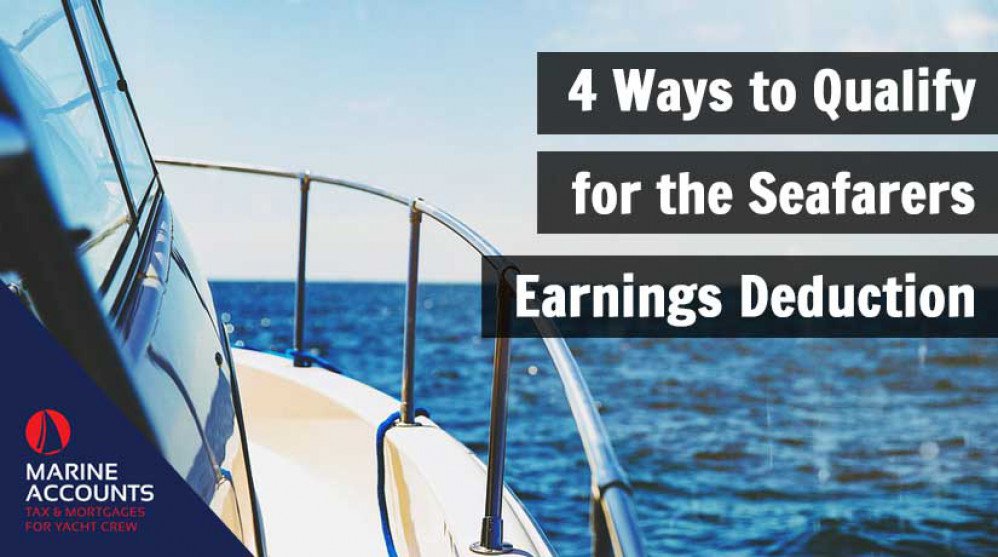4 Ways to Qualify for the Seafarers Earnings Deduction
- Authors
-
-

- Name
- Patrick Maflin
-

Image source: https://pixabay.com/photos/boat-yacht-railings-leisure-luxury-1867236/
Whilst the Seafarers Earnings Deduction (SED) has been in place for more than 20 years now, the ins and outs still remain a mystery to many seafarers who likely qualify.
We have seen that many more seafarers have begun to act on their entitlement, however a large subsection remain of those who are either too unsure to make their claim or are completely unaware that they may qualify.
Below you can find 4 useful tips to make sure you have a rock-solid claim:
Establish a qualifying period
The first step on the road to tax free earnings is to establish your initial ‘qualifying period’.
This period must be a minimum of 365 days in length and you must have spent at least 183 of these days outside of the UK.
You can begin counting your days outside the UK from the day you leave to begin your first contract of employment offshore.
Plan ahead
Probably the most daunting task facing those looking to make their first claim is having to rummage through a few years worth of paperwork to find flight stubs, contracts and receipts to confirm their days in and out of the UK.
If you’re lucky enough to be setting out on a career in yachting (or any other industry involving working on a qualifying vessel) you’d be best advised to begin keeping these records in one place now.
Whilst it is a myth that you must keep a Seaman's Discharge Book in order to qualify, HMRC may wish to see some form of evidence of your employment and dates outside the UK in order to confirm your qualification.
Where were you at midnight?
Once you have established your initial qualifying period, the simplest way to maintain your qualification is to ensure you are outside the UK for at least 183 days in any given 365.
Counting days in and days out should be fairly simple.
The only point of confusion we come across regularly being the inclusion of days of arrival or departure.
To account properly for these travel days, the guidelines should perhaps advise that you count how many days you were in the UK at midnight.
If you were UK based for 182 midnights or less during any given 365-day period, your qualification will continue.
Remain on the move
Whilst this particular rule may not affect many yachties, this year we have seen a rise in claims from those working in other industries which involve working offshore.
If this is you and you wish to make a claim for the SED, it is important to take into account the type of vessel your duties are performed on.
As a rule of thumb, if your vessel remains stationary whilst being used for a ‘relevant purpose’ (for example oil drilling) for 5 days or more at a time, your income will not qualify to be declared under the deduction.
Another important stipulation is that your vessel must be self-propelled.
If your vessel is carried or pulled by another, your income will again not qualify for the deduction.
Whilst there are further requirements to meet to ensure qualifying to declare your income under the SED, this article has covered a few of the more common misunderstandings around establishing and continuing a qualifying period.
If you remain one of the many who are still yet to claim your entitlement, you can Contact Us Today For Advice.
Any advice in this publication is not intended or written by Marine Accounts to be used by a client or entity for the purpose of (i) avoiding penalties that may be imposed on any taxpayer or (ii) promoting, marketing or recommending to another party matters herein


